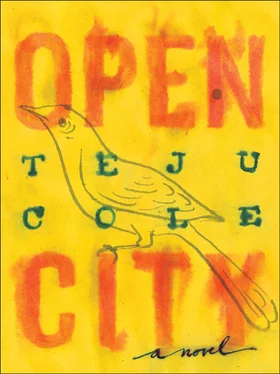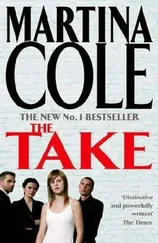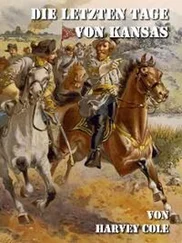It is easy to have the wrong idea about Brussels. One thinks of it as a technocrats’ city, and because it was so central to the formation of the European Union, the assumption is that it is a new city, built, or at least expanded, expressly for that purpose. Brussels is old — a peculiar European oldness, which is manifested in stone — and that antiquity is present in most of its streets and neighborhoods. The houses, bridges, and cathedrals of Brussels had been spared the horrors visited on the low farmland and forests of Belgium, which had borne the brunt of the countless wars fought on the territory. Slaughter and destruction, ferocious to a degree rarely experienced in history, had taken place on the Somme, in Ypres, and before that, out at Waterloo.
Those were the theaters, so conveniently set at the intersection of Holland, Germany, England, and France, in which Europe’s fatal tussles had played out. But there had been no firebombing of Bruges, or Ghent, or Brussels. Surrender, of course, played a role in this form of survival, as did negotiation with invading powers. Had Brussels’s rulers not opted to declare it an open city and thereby exempt it from bombardment during the Second World War, it might have been reduced to rubble. It might have been another Dresden. As it was, it had remained a vision of the medieval and baroque periods, a vista interrupted only by the architectural monstrosities erected all over town by Leopold II in the late nineteenth century.
During my visit, the mild winter weather and the old stones lay a melancholy siege on the city. It was, in some ways, like a city in waiting, or one under glass, with somber trams and buses. There were many people, many more than I had seen in other European cities, who gave the impression of having just arrived from a sun-suffused elsewhere. I saw old women with dotted black patterns around their eyes, their heads swaddled in black cloth, and young women, too, likewise veiled. Islam, in its conservative form, was on constant view, though it was not clear to me why this should be so: Belgium had not had a strong colonial relationship with any country in North Africa. But this was the European reality now, in which borders were flexible. There was a palpable psychological pressure in the city.
I’m sure Mayken’s “four percent Arab and African” was intended to be snide, but from what I saw, it might have been a modest estimate. Even in the city center, or especially there, large numbers of people seemed to be from some part of Africa, either from the Congo or from the Maghreb. On some trams, as I was to quickly discover, whites were a tiny minority. But that was not the case with the morose crowd I met on the metro some days after my arrival. They had been to a rally at the Atomium to protest racism and violence in general, but in particular a murder that had happened much earlier, in April of that year. A seventeen-year-old, after refusing to give up his mp3 player, had been stabbed by two other youths at the Gare Centrale; this had happened on a crowded platform, during rush hour, with dozens of people around; the fact that no one had done anything to help the boy had become a point of discussion in the days following the murder. The murdered boy was Flemish; the murderers, reports said, were Arab. Fearful of racial backlash, the prime minister had appealed for calm, and in his homily that Sunday, the bishop of the city had bemoaned a society so indifferent that everyone around had refused to help a dying boy. Where were you at 4:30 P.M. that day? he had said to the crowded congregation at the Cathédrale des Saints Michel et Gudule.
The bishop’s hand-wringing had gotten a swift and impassioned response from the Vlaams Belang (the Flemish right-wing party) and its sympathizers. Well-known columnists took a wounded tone and complained of reverse racism. The victims were being blamed, they said; the problem was not with uncaring passersby but with the foreigners who committed crimes. It was easier to get flagged for violating biking rules than for actually stealing a bike, because the police were afraid of being seen as racist. One journalist wrote on his blog that Belgian society was fed up with “murdering, thieving, raping Vikings from North Africa.” This was quoted approvingly in certain mainstream sources. Efforts by the Muslim community in Brussels to heal the wound, such as their distribution of home-baked bread at the public memorial service for the murdered boy, drew a furious response from right-wingers. Later, during the elections, the politicians of the Vlaams Belang recorded gains once again, consolidating their position as possibly the biggest party in the country. Only the coalitions of the other groups kept them out of power. But the murderers in the Gare Centrale case, it turned out, weren’t Arab or African at all: they were Polish citizens. There was some debate about whether they were Roma, gypsies. One of them, a sixteen-year-old, was arrested in Poland; his seventeen-year-old partner was arrested in Belgium and extradited to Poland, and with his departure, some of the tensions around the case dissipated.
But there were other ugly incidents. I was there at the very end of 2006, a year in which several hate crimes had ratcheted up the tension experienced by nonwhites living in the country. In Bruges, five skinheads put a black Frenchman into a coma. In Antwerp, in May, an eighteen-year-old shaved his head and, after fulminating about makakken , headed for the city center with a Winchester rifle, and started shooting. He seriously injured a Turkish girl and killed a nanny from Mali, as well as the Flemish infant in her care. Later on, he expressed a specific regret: for having accidentally shot the white child. In Brussels, a black man was left paralyzed and blind after an attack at a petrol station. The paradoxical result of these crimes was that even politically centrist parties like the Christian Democrats began to lean rightward, adopting the language of the Vlaams Belang in order to cater to voter discontent about immigration. The country was in the grip of uncertainties — the sense of anomie was apparent even to a visitor.
I went to the Parc du Cinquantenaire. It was covered in fog, but this made the scale of the monuments seem even bigger. The already gigantic arcades shot up vertiginously and lost their heads in faint white veils, and the rows of trees before and beyond them, rigid as sentries, stretched into eternity. The park, built by a heartless king, was also of inhuman scale. A handful of tourists, so dwarfed by the monuments that, from a distance, they looked like toys, roamed around silently, taking photographs. When they came closer, I heard them speaking Chinese.
It was half past four, night fast falling, and the air was misty and cold; the area just southeast of the park looked out into Etterbeek and the Mérode metro station, a complex assortment of roads, tram tracks, and signs, but few people were about on Christmas Eve. In the park, right in front of the Musées Royaux d’Art et d’Histoire, which I had intitially taken for the better known Musées Royaux des Beaux-Arts, a broad-headed horse stood by a carriage marked POLITIE, but there were no police officers in sight, and the museum was closed. Under the arcade was a bronze plaque displaying in relief the portraits of the first five Belgian kings: Leopold I, Leopold II, Albert I, Leopold III, and Baudouin, and beneath it an inscription that read: HOMMAGE A LA DYNASTIE LA BELGIQUE ET LE CONGO, RECONNAISSANTS, MDCCCXXXI. Not triumph, then, but gratitude; or gratitude for triumphs achieved. I stood under the arcade and watched the Chinese family enter their car. They drove away, leaving just me and the patient horse. We were the two living animals in that place, and with every breath cold fog entered our lungs. I was there, it seemed to me, to no purpose, unless being together in the same country, as I and my oma now were (if, that is, she were still alive), was, by itself, a comfort.
Читать дальше












